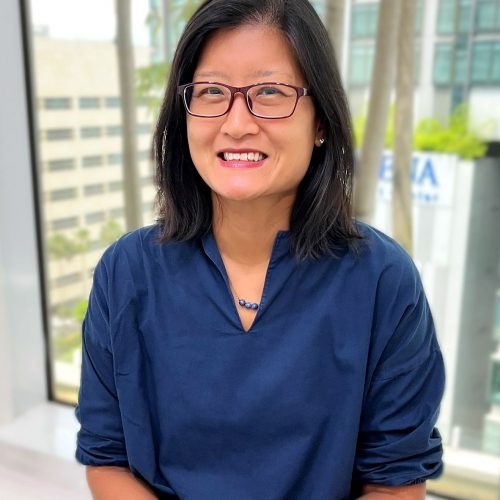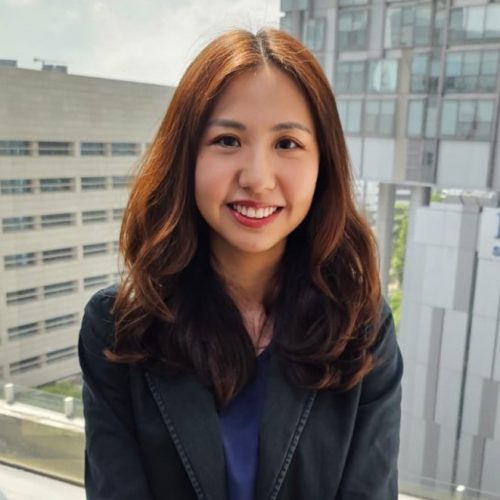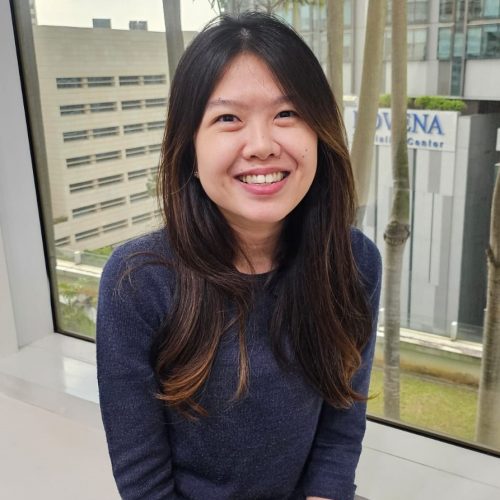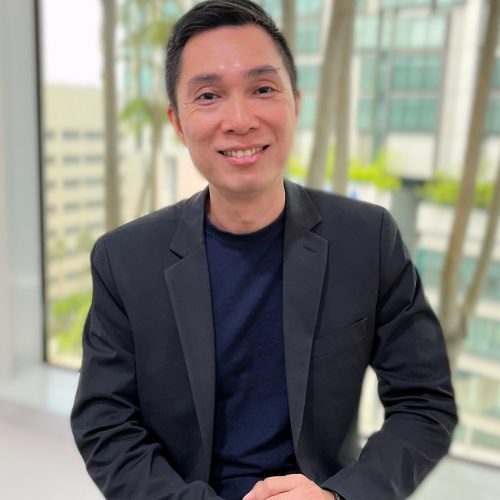




OUR VISION
To create a more resilient world
OUR MISSION
We strive to extend people’s capacity to develop psychological immunity by building a resilient culture.
Are you battling depression? Obsessive-Compulsive Disorder (OCD)? Attention-Deficit Hyperactivity Disorder (ADHD)? Post-Traumatic Stress Disorder (PTSD)? Dementia? Or simply just feeling down? No matter what you are going through, you deserve to be happy.
Allow our team of clinicians to help you at a pace that suits you, by improving your mental strength and building your resilience. We believe that with the right direction, anyone can shape a new life. Let us build a meaningful relationship with you.
“… with the right direction, anyone can shape a new life.”
OUR VALUE PROPOSITION
We inoculate people with the necessary knowledge and skills, enhancing their capacity to cultivate strengths so that they can positively cope with, respond and adapt to life’s adversities and challenges.
OUR CORE VALUES
- Impact Lives (making a difference, small steps leading to big chances)
- Build Value (creating worth and value for our customers)
- Pursue Innovations (adopting a spirit of creativity and imagination, and developing competencies)
- Embrace Fun (living and breathing fun)
- Be Authentic (practising relational transparency and continuous self-awareness)
REDEFINE YOUR LIFE TODAY




ABOUT US
Our trusted clinicians are refreshingly open-minded. It’s like talking to a friend. Check out our team of professionals!
BACKGROUND
I am a medical doctor by training. During my early years as a doctor, I worked in different hospitals and treated patients with various medical and surgical conditions. I even delivered more than 30 babies during my OB-GYN posting at the National University Hospital (NUH). However, with a deep interest in the human mind, I eventually decided to pursue further training in psychiatry so as to help people suffering from psychological illnesses. I also received training in the field of addiction medicine.
1. Where did your passion begin?
It all started with a novel called Doctors, written by Erich Segal. I became intrigued by Barney Livingston who was a psychiatrist and the main character in the story. It tells the story of the challenges and joy of helping people with psychological adversities.
2. How would you define mental health?
Imagine a tree. Mental health is like its roots, unseen but no less important than the other parts of the tree. Without its roots, the tree perishes. The root system going deep down into the ground also represents the complex neural network and intricate nervous system in our brain.
3. What do you think about the current mental health scene in Singapore?
People are less afraid to talk about mental health issues or to seek help for psychological problems. But more can be done. More awareness is still needed. If you seek treatment without a second thought when you are having the flu or stomach upset, you should equally be ready to seek treatment when you are emotionally distressed.
4. Why do you enjoy working at RESILIENZ, and what do you think sets the company apart?
When I set up RESILIENZ, I had the vision of helping people build their psychological immunity to defend against life’s adversities so that they can be resilient and hardy. I believe that every individual can bounce back from any adversity. RESILIENZ lends that hand to help you rebound.
5. What are some of your hobbies outside of work?
Watching movies and cycling at the beach.
FAVOURITE QUOTE
“Do not judge me by my success, judge me by how many times I fell down and got back up again.” Nelson Mandela

Dr Suellen Lee
Senior Clinical Psychologist
Ph.D (Clinical Psychology)
* not a medical or dental qualification
M.Ed (Counselling Psychology)
California Psychology License: PSY27801
BACKGROUND
I am a US-trained Clinical Psychologist licensed in the state of California. I have over 10 years of experience working with adult individuals, children and families from various cultural and ethnic backgrounds. Being a school teacher for children aged 6 – 14 prior to my current profession, it has also given me an added experience in communicating with children.
1. Where did your passion begin?
I think it started when I was in secondary school when I realized that listening to my friends’ woes never felt “too much” and they felt free to share things with me. My experiences through church as an adolescent also created an aspiration in me to pursue a helping profession. My passion for helping others from then on evolved from missions, to medicine, and teaching before I decided that listening to people and helping them with their sufferings was my path.
2. How would you define mental health?
Mental health includes the psychological, emotional, social, and physical aspects of one’s overall well-being. In addition, what is “healthy” for one person versus another depends on their social context and background (e.g. culture, class and religion), access to resources, abilities and individual temperament. Given our ever-changing modern world, mental health is about the flexibility to adapt to one’s circumstances – especially when they change! – and cope as adaptively as possible with the stresses of life.
3. What do you think about the current mental health scene in Singapore?
I know I did not grow up with mental health being a subject at all in the home or community, so I think it’s hopeful and encouraging to see Singapore take mental health more seriously. Reducing the stigma around mental health remains a challenge (as it is in other countries), but as professionals we can do much to provide appropriate psychoeducation in our communities to create more understanding and acceptance in our communities whenever someone presents with mental health needs.
4. What are some of your hobbies outside of work?
In my spare time I like to read (both fiction and non-fiction), hike, swim, run, and do yoga. When I can, I also dabble in writing short fiction, cooking, trying different cuisines, and gardening.
FAVOURITE QUOTE
“It is in playing and only in playing that the individual child or adult is able to be creative and to use the whole personality, and it is only in being creative that the individual discovers the self.” – Donald W. Winnicott

Dr Yen P Wong
Senior Clinical Psychologist
DClinPsyc
* not a medical or dental qualification
BSocSci (Hons) in Psychology
HCPC-Registered License: PYL37080
BACKGROUND
I am a HCPC-registered clinical psychologist. I have more than 10 years of experience working on cases of varying complexities in the United Kingdom and in Singapore. I served the international and local population, in both institutional and community settings. I am well-versed with adult and paediatric clients presenting with mood difficulties (depression and anxiety), personality disorders, dermatological conditions (e.g., eczema and trichotillomania), sleep issues, grief, coping with chronic and terminal illnesses, and neurodevelopmental disorders (ADHD, autism, etc.).
1. Where did your passion begin?
I had the privilege of being from one of the top girls’ secondary school in Singapore. My peers were incredibly bright and hardworking. However, I couldn’t help but notice that some appeared to have trouble coping emotionally despite being all-rounders in their academics and their CCAs. That sparked my curiosity in understanding how and why people think and behave – at a time before there was greater mental health awareness. I was fortunate to be able to develop my interests at the University College of London under a MOHH scholarship, where I worked with some of the leading minds in the mental field health field.
2. How would you define mental health?
More often than not, there is a perception that mental health is the absence of mental illness. I believe that mental health is more than that. Mental health is the bringing mental wellness to the next level, by learning and developing skills to cope with daily life stressors which may threaten our mental wellbeing.
3. What do you think about the current mental health scene in Singapore?
There is greater mental health awareness in light of the pandemic and the stressors it has brought upon society. With this, I believe there is reduced stigma in relation to help-seeking behaviours. This can set the stage to promote better wellbeing with early intervention.
4. What are some of your hobbies outside of work?
Pre-pandemic plans to travel and hike, spending time with my family, as well as planning the grocery list each weekend.
FAVOURITE QUOTE
“I am not what happened to me, I am what I choose to become” – Carl Jung

Chris Wong
Senior Clinical Psychologist
M.Psych (Clinical)
BA (Hons) Psych
Registered Psychologist (Singapore)
BACKGROUND
I graduated with a Master of Psychology (Clinical) at National University of Singapore (NUS). Prior to joining Resilienz, I had been working many years in the community and subsequently in healthcare. I have worked with clients with a range of mental health conditions (e.g. mood and anxiety disorders, emotional and interpersonal difficulties), providing individual and group therapy to clients as well as training and consultation to teams.
1. Where did your passion begin?
My foray into Psychology started out with a curiosity about the self and the human mind. Interest grew into passion, and coupled with the desire to help, I decided to embark on the journey of helping others as a psychologist.
2. How would you define mental health?
Mental health is about how we feel, think, and function in various aspects of our lives. Actively cultivating positive mental health is important as it helps us to be well and handle life’s challenges more effectively.
3. What do you think about the current mental health scene in Singapore?
There have been great strides forward no doubt in the awareness of mental health issues and the avenues for help, including some ground up initiatives. Nevertheless, there remains considerable stigma and misconceptions about mental health issues. There is also room for progress in terms of the appreciation of the importance of mental wellness and the work of mental health professionals.
4. What are some of your hobbies outside of work?
I enjoy playing and watching soccer, and look forward to my regular dose of soccer action. I love spending quality time with family, and when I’m on my own, I chill out to coffee, music, and some reading.
FAVOURITE QUOTE
“Everyone — and that includes therapists as well as patients — is destined to experience not only the exhilaration of life, but also its inevitable darkness…” – Irvin Yalom, on therapist and patient as ‘fellow travelers’.

Dr Jane Low
Senior Clinical Psychologist
PhD (Psychology)
* not a medical or dental qualification
Masters of Psychology (Counselling)
Member of Singapore Psychological Society (SPS)
Registered Psychologist (Australia)
BACKGROUND
My journey in psychology started in Australia. I have been working as a psychologist for over 10 years. I have worked across the lifespan, supporting children, adolescents and adults with a range of mental health issues. My therapeutic approach is friendly, warm and person-centered where I utilised evidence-based interventions to help individuals navigate life’s challenges. My doctoral research has focused on staff burnout and recommendations to better manage burnout.
1. Where did your passion begin?
My passion for psychology and healthcare began back when I was in the St John’s Ambulance Brigade in secondary school. I realised that I am patient and attentive to details, which helps me really listen to the challenges people face. I also have a desire to support others to recognise their own potential which can help them to grow through the difficulties they are experiencing.
2. How would you define mental health?
Mental health is about feeling at peace with yourself, staying connected with others, and finding joy and satisfaction in what you contribute to your life. Having a good work-life balance and using the resources available to us can help us to better handle challenges that comes along the way. I believe that setting healthy limits can also help us to focus on what truly matters and navigate life’s ups and downs with more clarity.
3. What do you think about the current mental health scene in Singapore?
I believe there is growing awareness of mental health issues in Singapore where people are becoming more open about discussing their struggles and challenges. There is also professional help available for those in need. I also think that there is still more that can be done to increase awareness, particularly in helping others recognise the signs and symptoms of depression and anxiety. By empowering individuals to have “check-in” conversations (e.g. Are you okay?) can help encourage others to seek timely and appropriate professional help.
4. What are some of your hobbies outside of work?
I enjoy doing Pilates and strength training workouts to help me stay active. I like to explore new places to eat. I also like taking care of my house plants – they bring a lot of joy to my space!
FAVOURITE QUOTE
“He who has a why to live can bear almost any how” – Friedrich Nietzsche

Elizabeth Ho
Principal Psychologist, Certified Traumatologist
MA (Applied Psychology)
BACKGROUND
I worked extensively with trauma patients in Changi General Hospital (CGH) and provided psychotrauma interventions and counselling. I was also deployed to local and overseas crises to provide psychological, humanitarian, and search and rescue assistance (e.g., the SQ006 crash in 2000, the collapse of the Nicoll Highway in 2004, and the Asian tsunami in 2005). I served on the National CARE (Caring Action in Response to Emergency) Management Committee as a board member, on top of being a CARE officer and trainer.
1. Where did your passion begin?
At 11, I was given a book “Introduction to Psychology”. I became intrigued with human behaviours, the mind, and what makes people tick. I was also fascinated with human psychopathology. I decided at that juncture that I would study human behaviours and the mental processes.
2. How would you define mental health?
Mental health equates to the psychological well-being of a person. It is about the person’s ability to function effectively, while realizing his/her own full potential in the society and within one’s community.
3. What do you think about the current mental health scene in Singapore?
Owing to social media and increased awareness of mental health issues, the social stigma associated with mental illness have diminished over the years. The common misperceptions of mental illness were previously related to personal weakness and/or a lack of hard work to stay positive.
We are more willing to seek help today because of better awareness and education. Family members and friends are more open and supportive towards their loved ones seeking mental health services now compared to years ago.
4. Why do you enjoy working at RESILIENZ, and what do you think sets the company apart?
I appreciate the great synergy in our team as we work to improve the mental wellness of our community. My colleagues and I are like different parts of a body; each highly skilled in their own areas of expertise, while complementing each other. I love the genuine care and authenticity of the team towards our patients. We also learn and grow together as a team.
5. What are some of your hobbies outside of work?
Needlework, crafting, and reading! I also enjoy sports, be it cycling, dancing, or swimming. When I have time, I bake. I can make a pretty mean traditional Kueh Lapis!
FAVOURITE QUOTE
“He is no fool who gives what he cannot keep to gain what he cannot lose.” Jim Elliot

Judette Teo
Senior Psychologist
MA (Applied Psychology)
Registered Psychologist (Singapore)
BACKGROUND
I have a decade of work experience in the field of mental health, including National University of Singapore-Health and Wellbeing, Ministry of Social and Family Development-Clinical and Forensic Psychology Service as well as primary health care setting. Working with a diverse clientele facing various psychological difficulties have cultivated a deep passion for trauma work and healing. These experiences have taught me what it means to encounter lives authentically and meaningfully, to think clinically and to provide appropriate empirical based-treatment interventions to meet the needs of my clients.
1. Where did your passion begin?
I would say that my journey towards developing an interest in psychology truly began as a young adult trying to make sense of my own experience of pain and suffering, with the desire for healing. My passion for this work grew exceedingly through my faith, ongoing learning, encountering lives meaningfully through my clinical work, and having had supportive and nurturing mentors in the field.
2. How would you define mental health?
Alongside the importance of physical health, mental health carries equal importance and its often neglected or minimized. Taking care of our psychological well-being as much as we do for our physical health allows us to not just live but thrive to our fullest potential.
3. What do you think about the current mental health scene in Singapore?
In my observation, there has been growing awareness of the importance of mental health and its impact on overall well-being within the community. Efforts to normalize and engage individuals and families in deeper conversations about mental wellness through various platforms (e.g., social media, public campaigns, talks/seminars, peer support, psychoeducation programmes, and government initiatives) have been helpful and are necessary steps in increasing this insight. However, there are still opportunities for growth in this area as misconceptions about mental health continue to exist.
4. What are some of your hobbies outside of work?
I enjoy prayer/meditation, reading, running, singing/playing the guitar, quality time spent with loved ones/close friends and travelling! These activities allow me to ‘be still’ and serve as nourishment for the journey ahead.
FAVOURITE QUOTE
“Owning our story can be hard but not nearly as difficult as spending our lives running from it. Embracing our vulnerabilities is risky but not nearly as dangerous as giving up on love and belonging and joy—the experiences that make us the most vulnerable. Only when we are brave enough to explore the darkness will we discover the infinite power of our light.” -Brene Brown
BACKGROUND
I started out as an Education Therapist for special needs students. Thereafter, I have been in the social service and healthcare sector. My experience in these sectors includes working with students in their life transition, supporting patients in recovery or end-of life issues.
1. Where did your passion begin?
My passion began when I was in my early teens. With a keen interest in Psychology, I studied psychology and actively volunteered as a para-counsellor and a volunteer coordinator. I worked closely with youth-at-risk and families who needed emotional support. I am also drawn to the science of addiction and Forensic Psychology which may be partially influenced by my love for thrillers and mystery.
2. How would you define mental health?
Though mental health is unseen and unspoken; it is an important aspect of life and how we function. Emphasis has always been placed on status and material possessions, but I believe that our internal resources are equally important. At any time, some life experiences can take a toll on our mental health and there are steps we can do to improve it.
3. What do you think about the current mental health scene in Singapore?
I think that the current mental health scene is gaining more recognition, but the stigma and negative connotations of mental health conditions can hinder the progress of people seeking help. The presence of EAP and workplace support can gradually open the doors for a society welcoming of mental health support.
4. What are some of your hobbies outside of work?
I enjoy music and arts. I like reading, playing musical instruments and attending concerts. I also unwind by watching thrillers and crime-related dramas.
FAVOURITE QUOTE
It is often in the darkest skies that we see the brightest stars
— Richard Evan

Khor Hui Yin
Counsellor
Masters in Arts (Counselling and Guidance)
BA Psychology (Hons)
BACKGROUND
I obtained my Masters of Arts (Counselling and Guidance) from Nanyang Technology University. I have extensive work experience in mental health rehabilitation setting and it helped me to understand some of the mental health conditions from the client’s worldview. From my interaction with the clients, it has deepened my belief that every individual has their unique strength and capacity to manage their life adversities.
1. Where did your passion begin?
I obtained my Masters of Arts (Counselling and Guidance) from Nanyang Technology University. I have extensive work experience in mental health rehabilitation setting and it helped me to understand some of the mental health conditions from the client’s worldview. From my interaction with the clients, it has deepened my belief that every individual has their unique strength and capacity to manage their life adversities.
2. How would you define mental health?
I think mental health is a connection between self and others; a purpose bigger than self and higher beings. It is a connection in life that promotes respect, growth, joy and love.
3. What do you think about the current mental health scene in Singapore?
There has been a great effort in raising awareness in mental health. It is especially so during this pandemic. However, I feel that more should be done in prevention rather than intervention. It can start with a society that is compassionate towards one another.
4. What are some of your hobbies outside of work?
I enjoy reading, writing, listening to music, jogging, cycling, basketball and spending time with my family and close friends!
FAVOURITE QUOTE
“Small things make a big difference” – Anonymous

Audrey Lim
Director, Operations
BACKGROUND
Prior to joining RESILIENZ, I worked as an Administrative Assistant at the Institute of Mental Health (IMH)’s Department of Addiction Medicine. That was also where I met Dr. Thomas Lee.
Choosing to join the mental health industry was a unique experience for me. I was accustomed to managing family businesses and was expected to continue in this area. It came as a surprise to my family when I choose a totally different path.
1. Where did your passion begin?
A majority of my previous work experiences involved backend work, which severely limiting my exposure to the actual services rendered to IMH’s patients. After having the opportunity to set up RESILIENZ and be intricately involved in its daily operations, I fell in love with my work and there is no turning back!
2. How would you define mental health?
Mental health is about expressing one’s emotions from a drawing to a storyboard. When our emotions are well regulated, this drawing tells a clear and beautiful story. When our emotions are out of control, the story becomes blurry and confusing. In such times, we can engage the help of an editor (psychiatrist or therapist) to help us get back on track and to reorganize our storyboard again.
3. Why do you enjoy working at RESILIENZ, and what do you think sets the company apart?
We work hard and play hard as a team! All of us are closely bonded, like a big family. It is amazing that even our new colleagues can easily blend into the RESILIENZ family, as if they have been working with us for years!
4. What are some of your hobbies outside of work?
Running and hunting down delicious local delights with friends and family!
FAVOURITE QUOTE
“It does not matter how slowly you go as long as you do not stop.” Confucius

Aileen Tan
Director, Business Development
BACKGROUND
I have been in Sales and Business Development for over a decade. I travelled extensively, helping the businesses I worked for to expand and grow regionally and internationally. ‘One should always keep an open mind to explore the world of opportunities’, that’s my motto in life!
1. Where did your passion begin?
I was exposed to the mental health industry during my pharmaceutical tenure. The experience gave me new perspectives on our psychological wellness and its impact on the inner workings of our minds.
2. How would you define mental health?
Mental health is an intangible aspect of someone’s wellbeing. I believe it to be as important as our physical health. Our physical health is the window to our inner psychological state. If we become physically ill, we naturally do not feel well emotionally. As such, it is vital to take care of our inner psychological state so that we can glow with radiance and joy.
3. What do you think about the current mental health scene in Singapore?
People are open to talking about mental health issues in general. However, when it affects themselves or their loved ones, they tend to deny reality. It is perfectly normal to not feel like ourselves at some points in our lives, given our high stress environments. We are only human after all.
4. Why do you enjoy working for Resilienz, and what sets the company apart in your opinion?
The bond we have forged together and our work chemistry at RESILIENZ sets us apart! Get to know us and you will see why!
5. What are some of your hobbies outside of work?
I am a spontaneous individual and I do not have specific hobbies. A game of volleyball, badminton, jogging or family/friends gathering are some of the activities I enjoy. Sometimes, being present in-the-moment and not doing anything can be therapeutic too.
FAVOURITE QUOTE
“Resilience is very different than being numb. Resilience means you experience, you feel, you fail, you hurt. You fall. But, you keep going.” Yasmin Mogahed

Janet Wang
Clinic Executive


